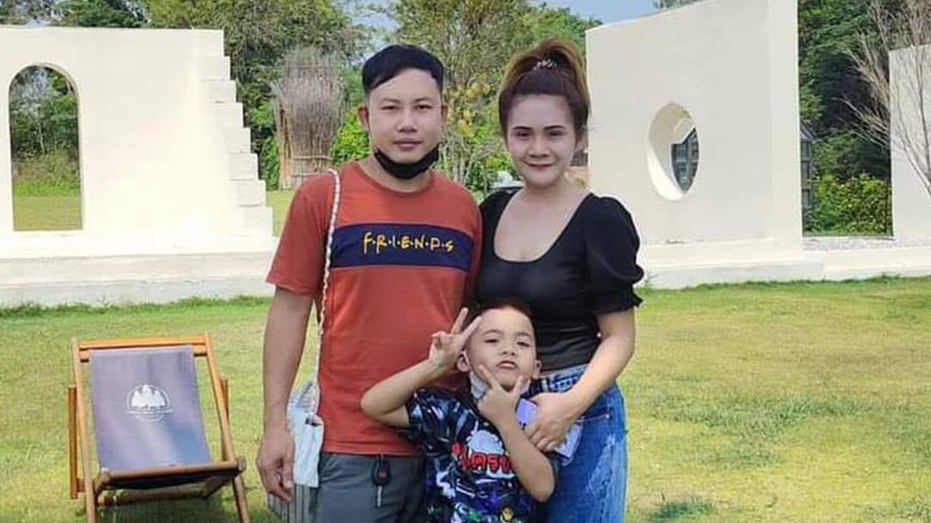Israeli defense forces have confirmed the recovery of the body of a Thai hostage who was tragically killed in Gaza by a terror organization. This incident, which underscores the dire consequences of ongoing conflicts in the region, highlights the broader implications of violence on innocent civilians caught in the crossfire.
The Thai national was reported missing amid the turmoil that followed the escalation of hostilities between Israel and militant groups in Gaza. His capture and subsequent death serve as a painful reminder of the human cost associated with prolonged conflicts, where individuals from all backgrounds suffer tremendously.
According to military sources, Israeli forces conducted a series of operations in the Gaza Strip aimed at targeting militant infrastructure while also seeking to locate and retrieve hostages taken during recent clashes. The operation that led to the recovery of the Thai man’s body came after extensive reconnaissance and intelligence efforts that sought to ascertain the whereabouts of kidnapped individuals among the chaos of conflict.
Details surrounding the circumstances of the hostage’s captivity and eventual death remain murky. However, reports indicate that the individual was abducted during heightened hostilities, which have surged in intensity and frequency over the past several months. The family of the deceased is reportedly devastated, having held onto hope for his safe return until the very last moment.
This tragic incident has reverberated beyond the borders of Israel and Gaza, drawing attention from international communities and human rights organizations concerned about the treatment of hostages and the broader impact of violence on ordinary lives. Advocacy groups have called for renewed efforts toward peace and dialogue to prevent such horrors in the future.
The rising tension in the region has exacerbated the already dire humanitarian situation in Gaza, where civilians frequently find themselves trapped between warring factions. In addition to the heartbreak for families like that of the slain Thai man, the situation continues to generate a complex web of socio-political challenges that impede humanitarian aid efforts and exacerbate the suffering of those who live in the territories.
International responses to these occurrences have emphasized the need for accountability and the protection of human rights in conflict zones. Many analysts believe that addressing the roots of the conflict could contribute significantly to a reduction in violence and the prevention of hostage situations like this one. The international community has been urged to support peace initiatives that seek to bridge the gap between conflicting parties and de-escalate tensions.
Diplomatic entities worldwide have expressed their condolences to the family of the deceased, highlighting their sorrow over the loss of life and reiterating the need for stringent measures to safeguard civilians in conflict areas. The incident underlines a tragic pattern where hostages often become bargaining chips in wider political disputes, leading to intense scrutiny over the practices of militant groups and their accountability in international law.
Furthermore, the Thai government has been officially informed of the recovery of the hostage’s body and is currently working on arrangements to repatriate the remains back to Thailand. There has been an outpouring of grief from Thai citizens, with many calling for justice for the hostage and the establishment of safer mechanisms to protect overseas nationals who may find themselves involved in conflicts abroad.
This incident also serves to amplify existing concerns regarding the treatment of foreign nationals in zones of conflict, highlighting the vulnerability of individuals who may find themselves far from home amidst violence. As governments around the world grapple with the reality of their citizens being caught in such conflicts, there is an increasing call for greater protections and rights for hostages, emphasizing the importance of their humane treatment, regardless of the circumstances surrounding their captivity.
Throughout the ongoing crisis, there have been numerous calls from humanitarian organizations urging for an immediate ceasefire to facilitate the delivery of aid to affected populations in Gaza. These organizations stress that unfettered access to humanitarian assistance is critical, especially given the deteriorating situation on the ground where food, water, and medical supplies are in short supply.
As Israel grapples with the fallout from the incident, it will likely double down on its military operations and security measures, further complicating the already fraught dynamics within the region. While many support such actions in the wake of violence against civilians, others argue that they often lead to an escalation that may result in further casualties and a continued cycle of retaliation.
What remains clear in the aftermath of this tragic event is the profound human impact of conflict. Each loss serves as a stark reminder of the urgent need for sustainable peace in the region, and the international community’s critical role in advocating for the protection of civilians and the resolution of enduring conflicts. As efforts continue to shine a light on the plight of hostages and the broader humanitarian crisis, the hope remains that lessons can be learned to prevent future tragedies.
The family of the Thai victim is left to mourn the loss of their loved one, whose life came to an untimely end amidst a conflict that seems to show no signs of resolution. They join countless others who are caught in similar circumstances, hoping for change that will usher in a more peaceful future for all affected by this enduring strife.
As the world watches, the situation in Gaza remains precarious, with the potential for further escalation always looming. It is imperative that all parties involved take immediate steps toward de-escalation and prioritizing the safety and rights of individuals who bear the brunt of violence. In doing so, they not only honor the memory of those lost, but also serve the greater aim of achieving lasting peace in the region.
































